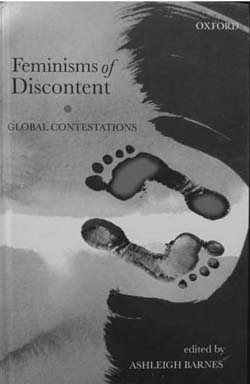The title of this book suggests two very significant things. The first is that a unified field of feminism is a misnomer and the second that there is a considerable amount of restlessness with feminist theory and politics. Both these elements actually make the domain of feminist scholarship and practice very charged and challenging, and open and dynamic.
The most exciting aspect of trying to map the terrain of feminist scholarship is twofold. First, that it is intrinsically linked with the lived experiences of men and women, second, that it draws its energies by critiquing and engaging in a dialogue with its own understanding. Feminist politics and scholarship has to be amongst the most selfcritical intellectual terrains. Most dramatic twists and turns within the feminist understanding of society and life have come from intense questioning of its own assumptions, in addition to fearless interrogation of some of the most entrenched and seemingly natural institutions of human civilizations across time and space. The piercing feminist gaze has come to bear upon terrains as diverse as political participation, family, child care practices, education and pedagogy, performing arts, fashion, law and medicine to mention a few. Feminism is in relentless pursuit of democratic ways of being and seeing, the aim is to craft a citizenship based on this democratic worldview.
The book under review reinforces the constantly evolving nature of feminist insights. An inevitable part of feminist politics and theory is its fearless and relentless questioning of every seemingly steady and finite idea and practice, including its own. Much of the expansion of feminist understanding has resulted from this process of constant questioning. The book edited by Ashleigh Barnes is yet another compilation of insights that have resulted in the most contemporaneous round of such questioning. From the 1990s, feminist studies have been engaged in opening up new spaces of inquiry, and expressing its dissatisfaction with available frameworks. What this suggests is not a complete overhauling of the existing feminist wisdom on a particular issue, but rather a desire to take it further and revisit the current explanations.

